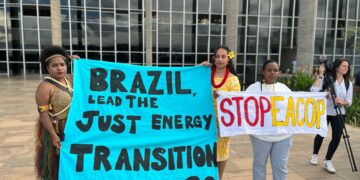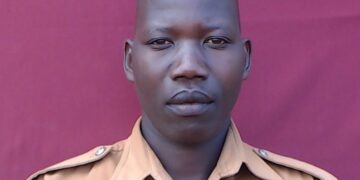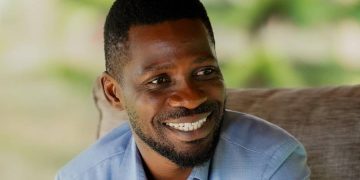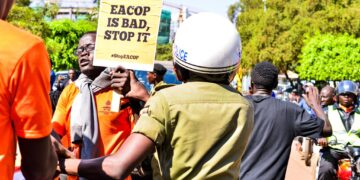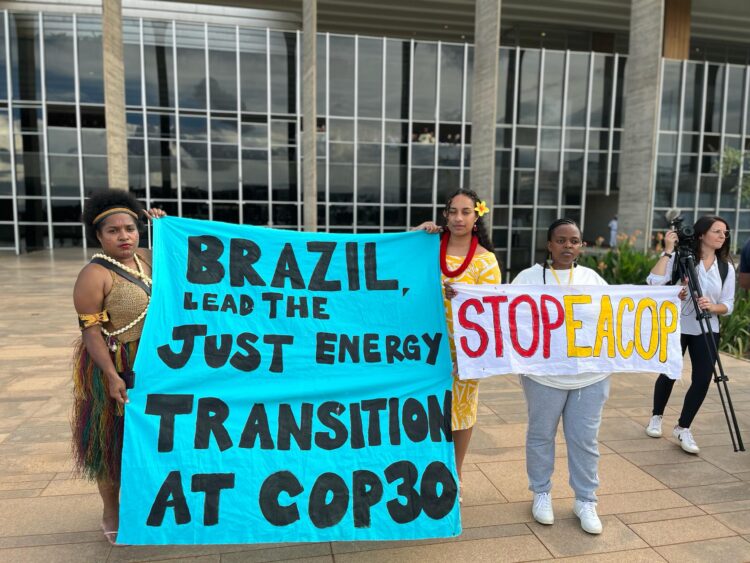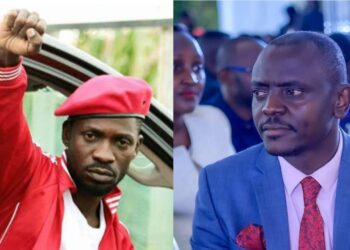OPINION
The Renew Our Power Gathering, held in Brazil from April 10th to 17th, 2025, brought together activists, indigenous, and traditional communities from around the world in a powerful display of global solidarity. This gathering resulted into a unified call for action following a delivered open letter addressed to the COP30 Presidency.
On April 10, 2025 last week, indigenous leaders from Brazil, the Pacific and Canada handed in civil society letter demanding the COP30 President-designate, Andrew Aranha Corran do Lago to put an end to fossil fuel era and move to a just energy transition at the COP30 office in Brasilia, Brazil.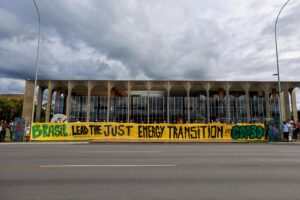
Earlier this week April 15, 2025, dozens of people from around the world including climate activists, indigenous leaders and community leaders joined in unison to call for a direct response to their letter delivered to the COP30 president during the Free Land Camp last week.
This letter was signed by over 150 organisations and thousand individuals in an online petition fronting their demands towards a just energy transition.
The open letter, a testament to the growing urgency of the climate crisis, presented a clear and uncompromising demand for a swift and just transition away from fossil fuels towards renewable energy sources.
The activists and leaders, deeply concerned by the escalating effects of climate change and its devastating impact on human health, expressed their dissatisfaction with the COP’s perceived lack of action. They argued that the COP, despite its focus on climate action, has remained largely silent during this critical period, a period they described as the “decisive decade” for climate action.

Their demands were varied, encompassing a comprehensive approach to a sustainable future and listed below are some of the demands in the letter.
First, they called for a supercharged expansion of renewable energy, while emphasizing not just the replacement and an end to fossil fuels but also the crucial need for affordable and accessible renewable energy for all.
Second, they demanded full funding for the energy transition, advocating for climate financing that prioritizes grant-based and debt-free mechanisms to accelerate the process.
Third, they called for an immediate phase-out of fossil fuels, a critical step in mitigating the worst impacts of climate change.
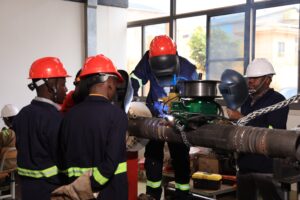
Finally, they insisted on the inclusion and empowerment of indigenous and traditional leaders in COP decision-making processes, recognizing their invaluable knowledge and advocating for their rightful place at the table.This involvement in leadership at COP will enable power and equal voice in climate negotiations while pushing for climate justice.
These demands emphasized in general that the shift to renewable energy must be grounded in community-led initiatives, prioritizing local needs and empowering communities to shape their own energy futures calling for a paradigm shift in energy policy, moving away from top-down, centralized models towards decentralized, community-based approaches.
This shift, they argued, would not only accelerate the transition to renewable energy but also foster greater social equity, ensuring that the benefits of clean energy reach all communities, not just the privileged few.
This month’s gathering follows another open letter with over 250 signatories that was written and delivered by a coalition of organisations, advocates and citizens on 18th March, this year to UNFCCC and Brazilian COP30 leadership to address Fossil fuel lobby influence.
The Renew Our Power Gathering served as a powerful testament that the fight for climate justice is not just about technology and individuals but also about social justice, demanding a world where everyone has access to clean energy and a healthy planet.
By Mary Blessing Ahairiirwe,
The writer is a Volunteer at Women for Green Economy Movement (WOGEM) Uganda
E-mail: maryblessingahairiirwe@gmail.com
